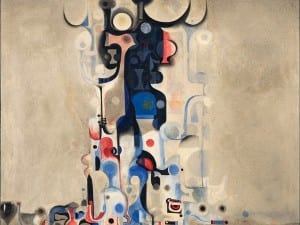Phil Grabsky is a dynamic filmmaker. His documentaries capture an impressive array of subjects, from Mozart to Afghanistan and Chernobyl. He produces features that are informative, challenging and genuinely artistic. His critically acclaimed and multi-award winning past productions include: In Search of Mozart, The Boy who Plays on the Buddhas of Bamyian and Mohammed Ali: Through the Eyes of the World. His latest film, Escape From Luanda, is a fascinating insight into Angolan life, told through three students who are studying at the capital city’s only music school.
Escape From Luanda takes the premise of Alan Parker’s movie Fame and transports it to streets of Angola. The result is a moving tribute to the character and determination of a generation that lived through years of conflict. Imagine for the first time in your adult life that the war is over and instead of a gun, you are offered a piano and a Beethoven score. Grabsky wanted to make a documentary about Africa that would show a surprising side to life and be one of universal impact and resonance. Researching the right subject for his film took time, but he eventually discovered the music school in Luanda (the capital of Angola) and realised that it had all the elements he was looking for. Prior to filming, Grabsky was unaware of the level of hardship many of the students, particularly female, have endured just to attend the school. “The film is also about the role of women and their position in Angolan society, which I hadn’t really anticipated. Two students received an ultimatum from their husbands, the music school or us. They chose the music school.” But the attitude towards women didn’t only effect the students. “The school’s director was sacked because the male teachers didn’t like being bossed about by a woman, she received death threats on the phone. The alternative for this very intelligent woman was to go back to work for the Angolan airline.”
There is a scene in Escape From Luanda where one of students, Joana, says, “Art is life”, but for some students it can also mean death. Joana believes that one of her female peers was shot by her estranged partner for simply attending the school. Grabsky reveals, “One of the girls said if it wasn’t for the music school ‘I would have killed myself.” It seems incredible that education, an act Westerners take for granted, could lead to such extreme emotions. However, this being a film by Phil Grabsky, it isn’t just about the music school in Luanda. As he has demonstrated time and time again, Grabsky has a talent for metaphor, and for using small-scale stories to illustrate the bigger picture. Escape From Luanda is also about the political, economic and social situation in Angola, which can be summed up, somewhat typically of the region, as the rich are getting richer while the poor are getting poorer.
What drives Grabsky to make the films he does? “I’ve always loved storytelling. I’m naturally curious. I like to learn. I like to find out about things. Documentary filmmaking is a fantastic privilege.” There is a more serious element for his need to tell stories. “Documentary filmmaking is an extremely powerful medium and I think you can make entertaining films that can sit on the plus scale, not the minus scale. I still see a lot of films with no positive value, and no positive impact. They are not helping improve the world in which my children are growing up in, and I think that filmmaking should address these issues. I think filmmakers can be a window to the world.” Grabsky takes his work seriously, he says, “I think the aesthetic of documentaries is something that tends to get overlooked and this is where I have the slight advantage of having come up through photography. I think a film can be entertaining and moving, but also be well shot, edited and have a good score.”
After two decades of filmmaking, Grabsky is now watching the next generation of documentary filmmakers emerge. He has plenty of advice: “If you really love it, you’ll do it. It’s like water going down hill; you’ll find a way around those boulders. There will be obstacles every single day, but you just carry on. That’s number one, number two, don’t imagine that what you’re doing is original, everyone has done every story possible, but ultimately it is still about storytelling. Thirdly, craft, craft craft. The theory of cinematography is essential. Finally, the best way to learn is to get out there and do it. You’ll never stop learning.” Escape From Luanda was released in cinemas from 23 January 2008 at the Barbican Cinema in London.
Rachel Hazelwood





